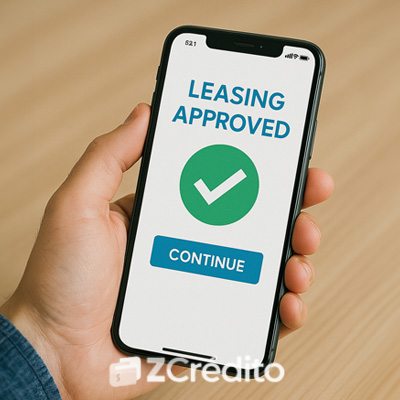Top 5 Tips for Choosing a Great SUV When Leasing a Car
Choosing an SUV to lease is a big decision—especially in 2025, where options are broader, and consumers are more informed. Discover everything about leasing a car.
Whether you’re trying to balance budget with comfort or image with fuel economy, knowing how to lease a car the right way starts with making a smart SUV selection.
Below, we highlight the top 5 tips to help you secure the best SUV possible when leasing a car, whether you’re a first-time lessee or someone looking to upgrade strategically.
Which Electric Sedan Is the Smartest Buy in 2025? Discover here.
Start your SUV leasing journey with the right mindset and structure 🚀
Choosing the perfect SUV to lease isn’t just about model preferences or budget constraints. It begins with an understanding of your needs, lifestyle, and financial goals—especially if you’re in a transitional phase, like rebuilding credit or managing debt.
This section introduces how to navigate categories and match them with your daily life before diving into contract specifics.

Leasing a Car: Understand the SUV categories and what fits your lifestyle best 🧩
Before diving into contract terms, you need to identify the SUV segment that aligns with your day-to-day needs. There are three major categories to consider:
| Category | Use Case | Examples |
| Subcompact SUVs | City driving, fuel economy, agility | Hyundai Kona, Honda HR-V, Kia Seltos |
| Midsize SUVs | Balance of space, power, and price | Toyota RAV4, Ford Escape, Hyundai Tucson |
| Full-size SUVs | Large families, cargo space, towing capacity | Ford Expedition, Chevy Tahoe, Toyota Sequoia |
Matching your lifestyle to the right class prevents you from overpaying for size or underestimating your space needs.
Compare leasing terms across dealerships and brands 📄
Not all leasing offers are created equal. Use digital tools like Edmunds, Cars.com, or manufacturer websites to:
- Compare monthly payments and lease incentives
- Understand residual value (how much the car will be worth at lease-end)
- Look for zero-down payment offers or low APR leasing programs
Pro tip: Check special lease programs for groups like first responders, students, or military members. These discounts can lower your cost significantly.
Discover everything you need to know about the GMC Sierra: click here.
Focus on features that reduce long-term cost and add value ⚙️
In 2025, the SUV market is loaded with models offering advanced technology. But not every feature is equally useful in a lease context.
Must-have SUV features when leasing:
- Advanced Driver Assistance Systems (ADAS): Lane keep assist, adaptive cruise control, blind-spot detection.
- Apple CarPlay and Android Auto: Keeps your smartphone fully integrated without extra monthly cost.
- Hybrid powertrain or electric options: Lowers fuel cost and qualifies for certain green incentives.
- Good resale reputation: Boosts residual value, which lowers your monthly lease payment.
Avoid paying extra for features you won’t use during the 2-3 years of a lease. Focus on cost-saving tech and daily functionality.
Leasing a Car: Know your credit and how it impacts your SUV lease 🔍
Your credit score directly influences the kind of lease terms you can access. Here’s a breakdown of how different score ranges can affect SUV leasing:
| Credit Score Range | Effect on Lease |
| 750+ | Access to best offers and low interest |
| 700–749 | Standard leasing options with good terms |
| 600–699 | May require co-signer or larger deposit |
| Below 600 | Subprime leases or higher monthly costs |
Before visiting a dealer, check your credit and get prequalified online when possible. You’ll negotiate better.
Discover everything you need to know about the Chevrolet Equinox EV: click here.
Leverage leasing calculators and simulators for smarter decisions 💡
Use online lease simulators to predict:
- Total cost of the lease
- Lease-end value vs buyout options
- Impact of higher mileage usage
This is especially useful for readers in transitional financial categories—like those rebuilding credit, balancing debt, or strategically investing.
Recommended leasing tools:
- Kelley Blue Book Lease Calculator
- TrueCar Monthly Payment Estimator
- Bankrate Auto Lease Tool
These platforms allow you to compare SUVs by cost, mileage, down payment, and APR, helping you make a clear, data-driven decision.
Leasing a Car: Leasing an SUV starts with informed choice and strategy 🛣️
To lease a car the right way—especially an SUV—you must combine market knowledge, financial readiness, and lifestyle clarity.
Whether you’re a young professional in need of mobility, a family upgrading from a compact car, or someone investing in image and comfort, your decision will influence your monthly cost, flexibility, and overall satisfaction.
Take advantage of tools, research, and simulations. And always remember: leasing a car is not just a transaction—it’s a strategy.
Discover everything you need to know about the Chevy Trax: click here.
FAQ ❓
- Is leasing better than buying if I drive a lot?
- Not always. If you drive more than 15,000 miles/year, leasing can become costly due to mileage penalties. Buying may be more economical long-term.
- What credit score do I need to lease a car?
- A credit score of 700+ usually secures good leasing terms, but even scores below 600 might qualify with larger deposits or co-signers.
- Can I end a lease early without penalties?
- Some leases allow transfers or early buyouts, but most will include termination fees. Check the lease agreement for specifics.
- Are SUVs more expensive to lease than sedans?
- In general, yes—due to their higher MSRP. However, high residual value models like the Honda CR-V can offer competitive lease rates.
- Can I lease a used SUV in 2025?
- Yes. Many dealerships and certified programs now offer used car leases with lower payments and shorter terms, making them an affordable option.